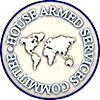


|
| For
Immediate Release: March 31, 2004 |
Contact: |
Harald Stavenas |
OPENING
REMARKS OF CHAIRMAN DUNCAN HUNTER
U.S. Pacific Command
and U.S. Forces Korea
Fiscal Year 2005 Posture
Hearing
This is the Committee's third hearing to review the posture of our combatant commands. Given the controversy surrounding elections in Taiwan, it couldn't be timelier.
On March 20th, Taiwan conducted an election to choose its next president-just one day after an assassination attempt on one of the two leading candidates and his running mate. The sitting President, Chen Shui-bian, survived the assassin's bullet and went on to win re-election by just two-tenths of a percentage point. Since then, the opposition party has contested the election and supporters of both candidates have held large street demonstrations. If nothing else, Taiwan's elections have reminded us that democracy is messy, but it is still democracy.
Contrast that with events across the Taiwan strait:
. where the
people of China have no voice in choosing
their leaders;
. where the people of Hong Kong have
unsuccessfully protested their
slow-but-steady loss of liberty and
democracy;
. where people are not free to practice
their faith; and,
. where the government has pursued
double-digit increases in defense spending
for a decade, well in excess of its
legitimate defense needs.
The situation across the Taiwan straits deserves our special attention because it has long been recognized as an international flash-point. But, it also points to the extreme range of conditions that exist in Asia: a fledgling but successful democracy just over 100 miles from the world's last major communist dictatorship. Or consider the Korean peninsula, where capitalism and democracy thrive south of the DMZ, but repression and famine are commonplace to the north.
The contrasts highlight what a dangerous, and uncertain, place Asia can be. While we have solid alliances with key states, the Pacific Command's Area of Responsibility is also home to some of the most troublesome security problems on the planet. Three of them stand out in particular.
First, the balance of power is changing across the Taiwan strait. China continues modernizing its military with the most advanced technology available from Russia. Taiwan, on the other hand, continues cutting its defense budget. These diverging military trends highlight a political problem, in which China constantly seeks to strangle more assertive demonstrations of Taiwanese democracy, lest the people of Taiwan decide that they don't want to surrender their rights in order to become part of greater China. Those trends are accelerating, undermining the fragile standoff that has secured peace across the strait for most of the last fifty years.
Things aren't much better on the Korean peninsula, where North Korea has reneged on its nuclear nonproliferation pledges and claims to have built an atomic bomb. Ironically, some of the very same people that attack the United States for unilateralism are now attacking it because the Administration insists that the nations of Northeast Asia resolve the problem multilaterally.
We can round out the trifecta of security threats by noting that Islamist-inspired terrorism has gained a foothold in Southeast Asia. Jemah Islamiyah, an Al Qaeda affiliate, has established a presence across the region, particularly in Indonesia, Malaysia, and Singapore. Abu Sayyaf and the Moro Islamic Liberation Front continue their war against the democratically-elected government of the Philippines. Both reportedly have ties to Al Qaeda.
While we seek diplomatic means of solving these problems, there should be no doubt that the military stands on the front lines in ensuring that they don't get out of hand. We absolutely must be ready, willing, and able to defeat aggression in the region in order to deter it. Everyone must know that force is not an acceptable way of resolving Taiwan's status. And, while we wish the people of North Korea a brighter future, the dictators in Pyongyang must understand they will not be allowed to threaten us with nuclear weapons. And finally, our staunch allies in the region, including Japan, Australia, and the Philippines, must rest assured that our security commitments to them are unshakeable.
###
2120 Rayburn House Office Building
Washington, D.C. 20515
|
NEWSLETTER
|
| Join the GlobalSecurity.org mailing list |
|
|
|

